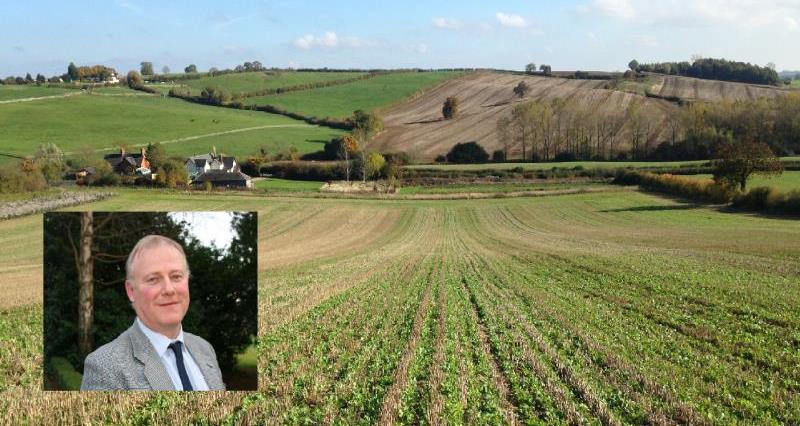He writes.....
When asked what we want from our soils, I’m told that future policy will want them to be healthy. They should also produce food, bring biodiversity benefits whilst helping carbon storage and flood protection. Just a small wish list then!
So how are we going to evolve a plan that addresses these issues and is deliverable in the UK? I think we need to grasp a couple of concepts from the start, firstly soil health is an infinitely complicated subject. Secondly, this plan is going to need farmers to embrace and deliver it.
Let’s deal with the complications first, the interactions between physical, chemical and biology within the soil are well researched but more difficult to be completely understood. You need a good soil structure to root crops, an array of nutrients to supply the building blocks of plant growth and harness the positive services provided our soil micro and macro fauna. There are millions of interactions in this arena influenced by cultivations, weather, organic additions, cropping choice, fertiliser use, earthworm numbers, plant protection products to name just a few. A one size fits all, a British Standard would be impossible to implement.
We need a set of policies that build on principles such as reducing cultivations where possible, keeping the soil covered whist building organic matter and growing a diverse varied rotation. Organic matter is good, it’s deemed as good, farmers think it’s good, so let get on and make it happen for the soil. There are some difficult questions to be answered around our ability to grow root crops, maize or organic systems that rely on numerous cultivations. Our primary concern should be to make sure our soils stay in the field, as this will be paramount to future profitability. An over reliance on chemical interventions, without having thoroughly researched the role of rotation, variety choice, cover crops and drainage. I’ve heard it called organic fusion, organi-ish farming or an agroecological approach which farms without labels. We are beginning to realise that a new soil health revolution is taking place, but one that will have to evolve over time, this is not a quick fix.
Many farmers will give fine examples of practices that they have been doing for years that are improving their soil health. Whatever, partnerships, associations, alliances and management we develop for soil they will need to take farmers on a journey to that leads to a positive impact on soil. Farmers will be part of the solution to develop a sustainable soil plan. The way we use metrics to establish progress will need careful consideration, so as not to over complicate and become counterproductive.
We will also need other areas to be thoroughly examined, a trading environment that ‘values quality food’ and supports the provenance of such food. This will help protect our soils, we need to be very careful about raising the environmental bar for UK farmers, whilst offering consumers the choice of affordable food, fostered in free trade deals. Such choices will almost certainly lead to less home-grown food and possibly more global environmental degradations elsewhere.
There will be tough choices ahead but policy makers, academics, researchers, farmers and environmentalists let’s look at ways to achieve “win-wins” rather than grudging compromises.
